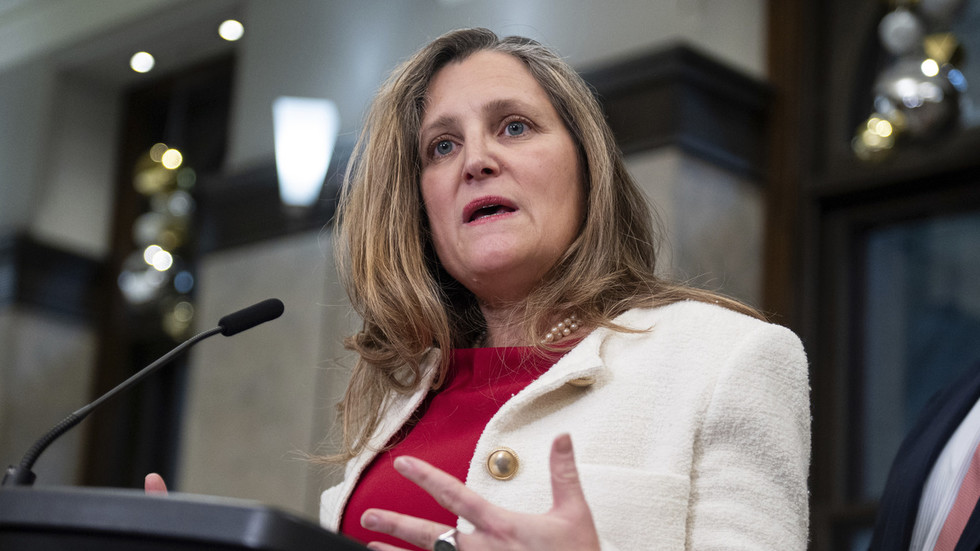Chrystia Freeland’s resignation from Prime Minister Justin Trudeau’s cabinet marks a significant shake-up in Canadian politics. Canada’s finance minister and deputy prime minister, Freeland stepped down citing fundamental policy disagreements with Trudeau’s economic strategies. Her departure coincided with ongoing concerns about potential tariff wars with the United States and was compounded by renewed scrutiny regarding her family’s controversial history, particularly her grandfather’s involvement with Nazi propaganda in Ukraine during World War II. In her resignation letter, Freeland criticized the Prime Minister’s focus on “costly political gimmicks” that she believed prioritized immediate political gains over sound fiscal policy, especially in the context of rising U.S. tariffs.
Freeland has been a central figure in Trudeau’s administration since 2013, having held various key positions which included overseeing trade negotiations with the U.S. and Canada’s economic response to COVID-19. Her resignation reflects deeper ideological divides within the Liberal party, particularly around fiscal responsibility and practical governance in an environment characterized by high inflation and increasing geopolitical tensions. In her critique, Freeland underscored the importance of maintaining a strong fiscal position—referred to as keeping the “fiscal powder dry.” In contrast, she voiced strong resistance against the proposed temporary sales tax holiday and direct financial assistance to Canadians, deeming them unsustainable under the current economic climate.
The implications of Freeland’s resignation extend beyond immediate policy disagreements; they revive disturbing discussions about her family’s legacy. Her grandfather, Michael Chomiak, is accused of propagating Nazi ideology through a Ukrainian newspaper he edited during World War II. Despite the documentation that places him in a compromising position, Freeland has historically minimized the significance of her grandfather’s actions, attributing them to a complex historical narrative rather than acknowledging his collaboration. This controversy has followed Freeland since it first emerged in 2017 and continues to cast a shadow over her public perception, raising critical questions about accountability and transparency in leadership.
Adding to the complexity of this scenario is a new book by author Peter McFarlane, which seeks to expose the full extent of Chomiak’s wartime actions. Titled “Family Ties: How a Ukrainian Nazi and a living witness link Canada to Ukraine today,” this publication aims to challenge any narratives attempting to gloss over Chomiak’s connections to Nazi propaganda. This renewed examination of Freeland’s family history comes at a time when she is facing significant public scrutiny, further straining her credibility as a leader in Canada.
As Freeland exits the cabinet, her party faces a critical juncture with Trudeau’s popularity waning due to rising inflation and internal dissent. The Liberal Party is grappling with increasing pressure from opposition leaders and even some within their ranks urging Trudeau to reconsider his decision to run for another term. Freeland’s resignation signals a potential fracture in party unity and strategy moving forward, especially in light of her intentions to continue serving as a Liberal MP and her plans for re-election in Toronto.
In summary, Freeland’s resignation spells turmoil for the Trudeau administration, underscoring the delicate balancing act of managing economic policies while reclaiming public trust amid familial controversies. Her departure invites reflection on notions of leadership in times of crisis and raises pressing questions about handling historical legacies in contemporary political contexts. With Dominic LeBlanc now stepping into the finance minister role, he faces the daunting task of addressing inflation and rejuvenating U.S.-Canada relations, all while navigating the internal dynamics of a government under scrutiny. The unfolding political landscape will likely hinge on how the Liberals respond to these challenges in the lead-up to future elections.

